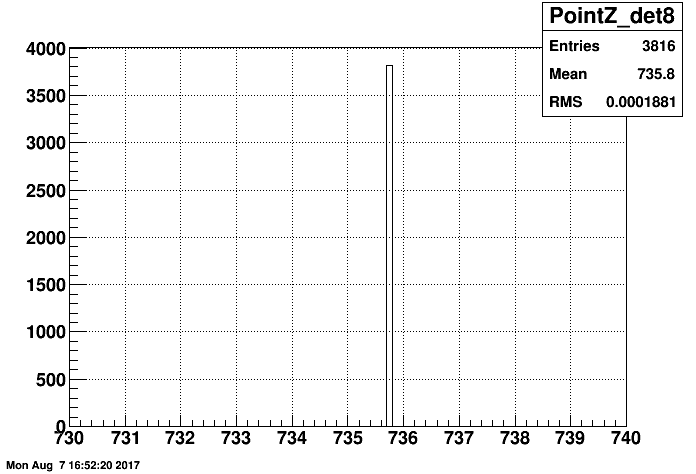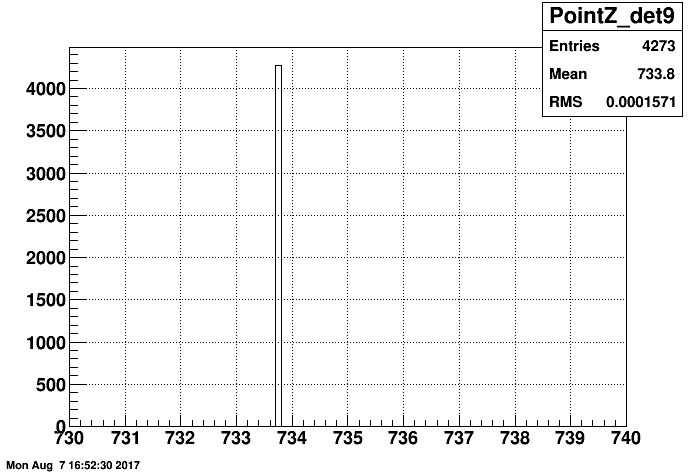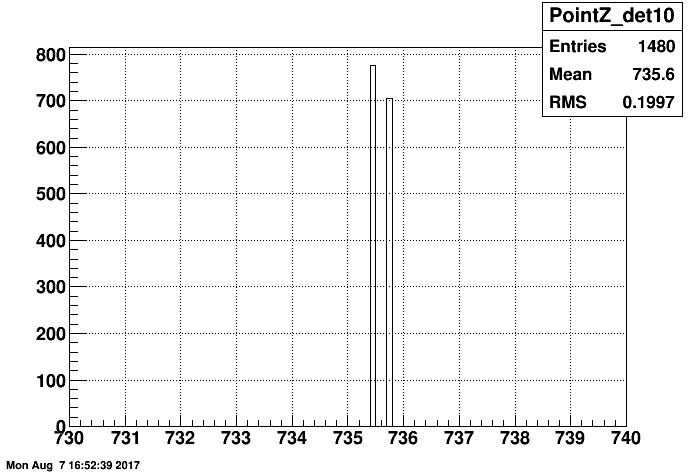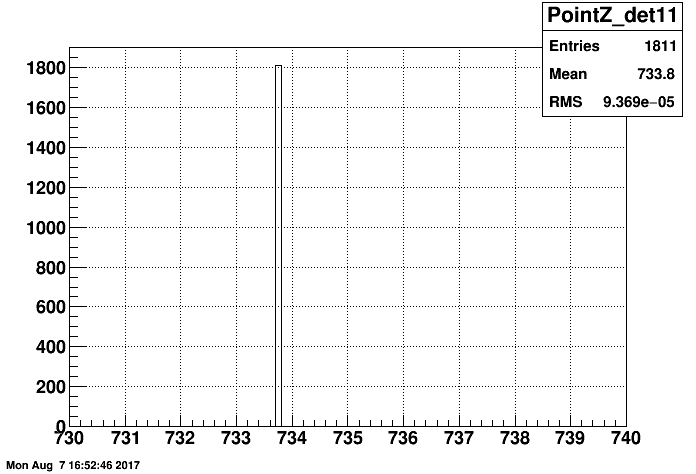- ckimstar's home page
- Posts
- 2020
- 2019
- December (1)
- November (1)
- October (1)
- September (4)
- August (4)
- July (3)
- June (2)
- May (2)
- April (2)
- March (5)
- February (1)
- January (1)
- 2018
- December (5)
- November (1)
- October (3)
- September (2)
- August (3)
- July (4)
- June (3)
- May (2)
- March (4)
- February (4)
- January (5)
- 2017
- December (2)
- November (3)
- October (4)
- September (5)
- August (6)
- July (2)
- June (3)
- May (4)
- April (5)
- March (4)
- February (3)
- 2016
- My blog
- Post new blog entry
- All blogs
FMS points' z (comments from meeting at Aug. 7)
- Used single segment of RUN15 pp200trans: st_fms_16066033_raw_0000005.MuDst.root
- ~7,800 events
- Applied cuts:
a. Points multiplicity cut (https://drupal.star.bnl.gov/STAR/system/files/CKim_170731.pdf)
b. Excluded bad looking FMS channels
c. FMS points E > 5 (GeV)
- Getting FMS z position (part of analysis code):
StSPtrVecFmsPoint& points = mFmsColl->points();
...
const int detId = points[a]->detectorId();
const float z = points[a]->XYZ().z();
then separated it by detId (north/south, large/small)
- Results:




- Checking the database:
b. dump file (dumpFmsDetectorPosition.txt)
1) zoffset of small cells: 734.1
2) zoffset of large cells: 729.7
3) No south/north difference
- Conclusion: the z position of points I use are NOT the one in DB (surface of FMS cells).
Why two distinct peaks exist for detId = 10 (south small)?
In addition two different type of cells (detId 9 and 11: South large/small) got similar points z. Why?
Is this coming from clusterization or point reco?
-----------------------------------------------------------------------------------------
- Update: Akio's explanation (quote from mail exchange)
To get STAR coordinate (xyz) from FMS local coordinate (x,y) to fill StFmsPoint, we use StFmsDbMaker::getStarXYZ().
Before run15 (with PositionModel=0), it uses x,y,z offsets from DetectorPosition DB and it asssumes perfect/regular matrix.
For run15 and beyond (with PositionModel>0 in DB), it uses codes provided by Stephen and Chris, called
$CVSROOT/StRoot/StFmsDbMaker/getCellPosition<year><beam>.*
which provide STAR xyz for a given cell based on survey and konwledges of spacer locations added by re-stacking of cells before run15.
This gives none-perfect/irregular matrix in XY, and also there are small difference in z.
Following are front surface z [cm] from getCellPosition2015pp.cxx:
nstb=1 (large north) 7208
nstb=2 (large south) 7188
nstb=3 (small north row>16) 7208
nstb=3 (small north row<16) 7204
nstb=4 (large north) 7188 <- small south? (Chong)
In addition, StFmsDbMaker::getStarXYZ() adds depth of shower max,
which is currently hardcoded as 15.0cm regardless if its small or large cells.
This should depends on small/large cell (and angle),
or we should move to Zauwen's code which gives xy in a certain reference Z he specifies.
...
find out in StFmsDbMaker, is this what model you are using. Looks like two more method is available for Run15(which I usually don't care).
So if mode==0 , it should be fine.
"if(mPositionModel==0){ //simple uniform model with xyz offsets and widthes from DB"
- ckimstar's blog
- Login or register to post comments
